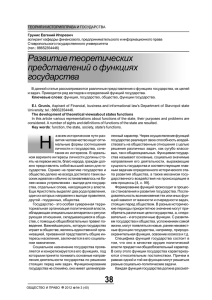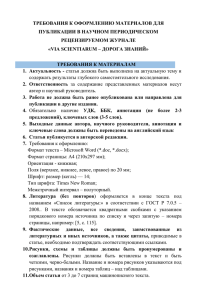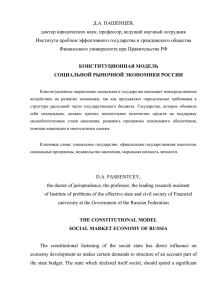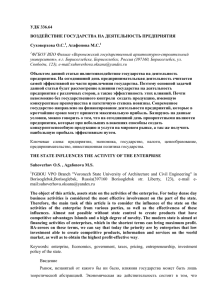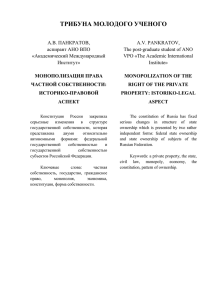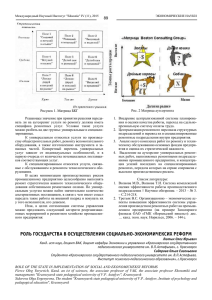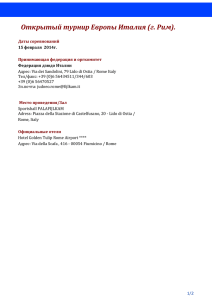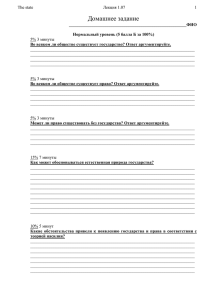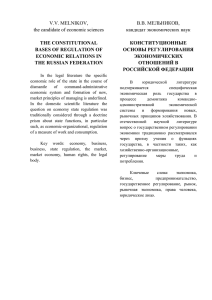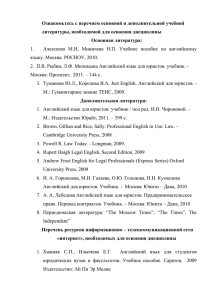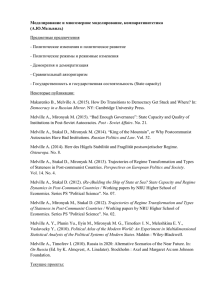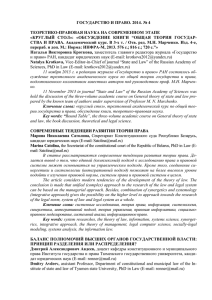Алексеева И.С., Алексеев А.И.
advertisement
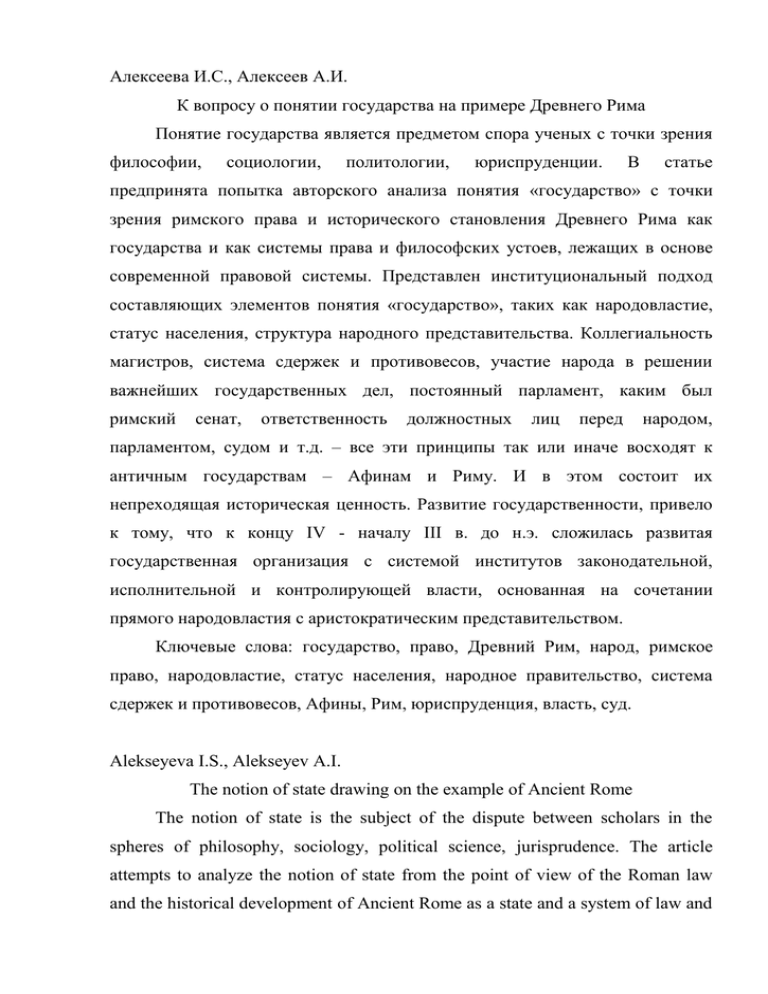
Алексеева И.С., Алексеев А.И. К вопросу о понятии государства на примере Древнего Рима Понятие государства является предметом спора ученых с точки зрения философии, социологии, политологии, юриспруденции. В статье предпринята попытка авторского анализа понятия «государство» с точки зрения римского права и исторического становления Древнего Рима как государства и как системы права и философских устоев, лежащих в основе современной правовой системы. Представлен институциональный подход составляющих элементов понятия «государство», таких как народовластие, статус населения, структура народного представительства. Коллегиальность магистров, система сдержек и противовесов, участие народа в решении важнейших государственных дел, постоянный парламент, каким был римский сенат, ответственность должностных лиц перед народом, парламентом, судом и т.д. – все эти принципы так или иначе восходят к античным государствам – Афинам и Риму. И в этом состоит их непреходящая историческая ценность. Развитие государственности, привело к тому, что к концу IV - началу III в. до н.э. сложилась развитая государственная организация с системой институтов законодательной, исполнительной и контролирующей власти, основанная на сочетании прямого народовластия с аристократическим представительством. Ключевые слова: государство, право, Древний Рим, народ, римское право, народовластие, статус населения, народное правительство, система сдержек и противовесов, Афины, Рим, юриспруденция, власть, суд. Alekseyeva I.S., Alekseyev A.I. The notion of state drawing on the example of Ancient Rome The notion of state is the subject of the dispute between scholars in the spheres of philosophy, sociology, political science, jurisprudence. The article attempts to analyze the notion of state from the point of view of the Roman law and the historical development of Ancient Rome as a state and a system of law and philosophical foundations that underlie the modern legal system. It presents the institutional approach to the constituent elements of the notion of state, such as democracy, the status of the population, the structure of the popular representation. The collegiality of holders of master’s degree, the system of checks and balances, the people’s participation in the decision of the most important state affairs, permanent parliament, as was the Roman Senate, the responsibility of officials in the face of the people, parliament, court, etc. – all these principles one way or another go back to the ancient states – Athens and Rome. And this is their intrinsic historical value. The development of statehood led to the situation that by the end of the IVth century – the beginning of the IIIrd century BC there a state organization had been developed with a system of institutions of legislative, executive and supervisory authorities, based on a combination of the direct democracy with the aristocratic representation. Key words: state, law, Ancient Rome, people, Roman law, democracy, status of the population, people’s government, system of checks and balances, Athens, Rome, jurisprudence, power, court.
